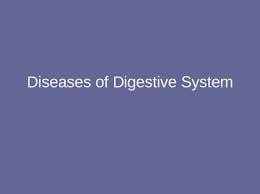

© 2014 -




Hepatitis
Diarrhoea
E-
Chron's Disease
Gastroenteritis

Hepatitis
Hepatitis is a disease that causes inflammation of the liver. It can be either acute (lasting less than six months) or chronic (lasting more than six months). Several viruses are known to cause hepatitis. Common forms of viral hepatitis include: Hepatitis A: hepatitis A is a virus that causes liver disease. This form of hepatitis never leads to a chronic infection and usually has no complications. The liver usually heals from hepatitis A within two months. However, occasional deaths from hepatitis A have occurred due to massive liver infection. Hepatitis A can be prevented by vaccination. Hepatitis B: this form of hepatitis causes liver damage. Most people recover from the virus within six months, but sometimes the virus will cause a lifelong, chronic infection, resulting in serious liver damage. Once infected, a person can spread the virus even if he or she does not feel sick. Hepatitis B can be prevented by vaccination. Hepatitis C: one of the most common causes of liver disease in the UK, hepatitis C is the number one reason for liver transplant. At least 80% of patients with hepatitis C develop a chronic liver infection. It often does not show any symptoms. No vaccine is yet available to prevent hepatitis C. Viral hepatitis is often preventable. However, it is still considered a serious health risk because it can: Destroy liver tissue. Spread from person to person. Weaken the body's immune system. Cause the liver to fail. Cause liver cancer (hepatitis B and C). Cause death.
Diarrhoea
Diarrhoea is defined as the passage of three or more loose or liquid stools per day (or more frequent passage than is normal for the individual). Frequent passing of formed stools is not diarrhoea, nor is the passing of loose, "pasty" stools by breast fed babies. Diarrhoea is usually a symptom of an infection in the intestinal tract, which can be caused by a variety of bacterial, viral and parasitic organisms. Infection is spread through contaminated food or drinking-
E-
Escherichia coli (usually referred to as E. coli) are bacteria found in the digestive system of humans and many other animals. Many strains are harmless and may play a useful role in the gut, helping us to stay healthy. However, certain strains known as verocytotoxin-
Chron's Disease
Crohn’s disease is a long-
Gastroenteritis
Gastroenteritis is an infection of the stomach and large intestine (bowel). The infection interferes with the absorption of water from the contents of your intestines into the body, which is one of the main functions of the intestines.

Christian Music, Radio, Social Networking and Inspirational Sites


